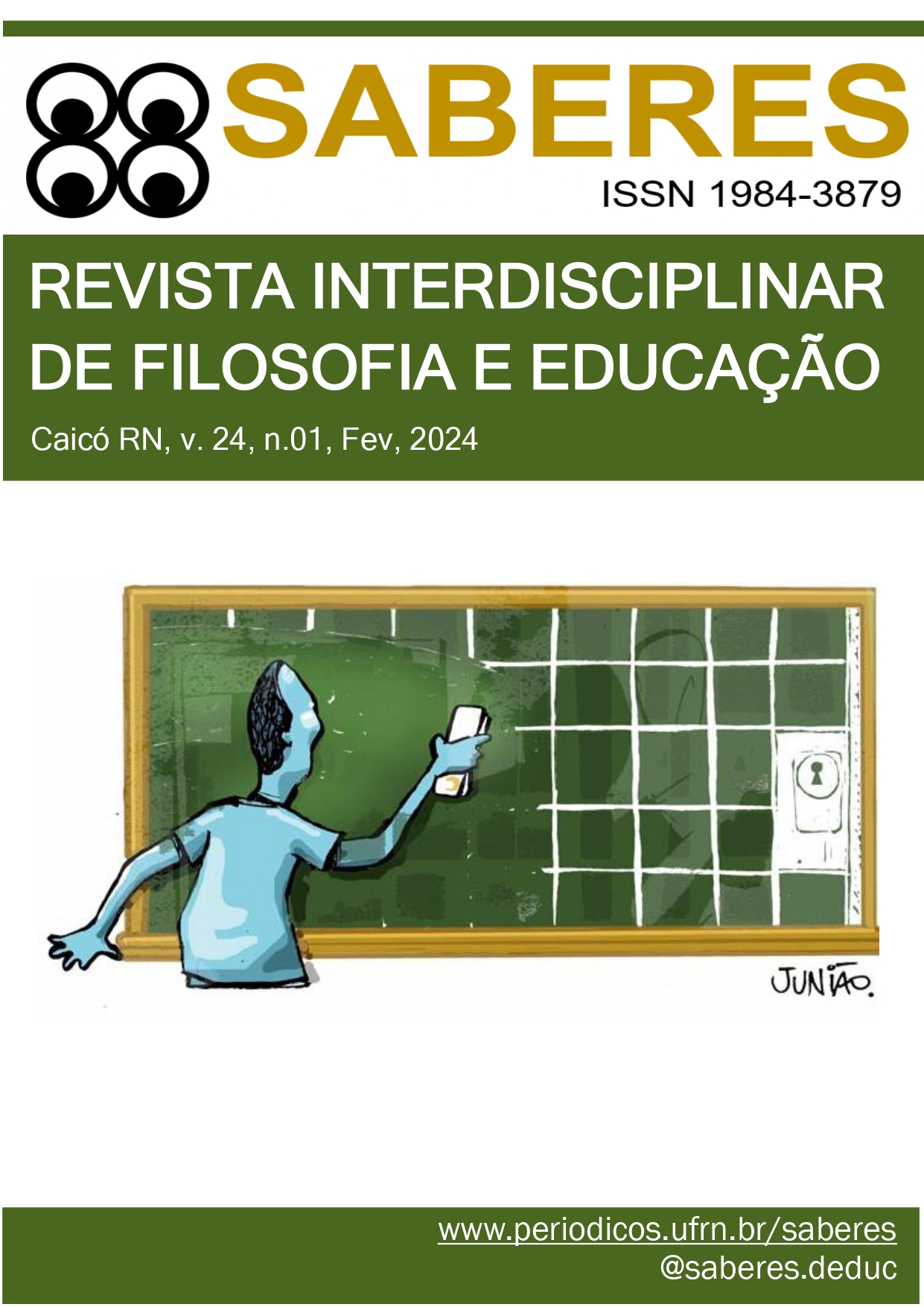MNEMOSYNE AND LEARNING
A Brief Reflection on Memory from Plato's Phaedrus and its relationship with Contemporary Times
DOI:
https://doi.org/10.21680/1984-3879.2024v24n1ID35115Keywords:
Memory, Plato, Contemporaneity, LearningAbstract
Memory is the human capacity to grasp the events of the past, so that they can be disseminated by men in subsequent centuries. In traditional societies, where writing did not yet exist, orality guaranteed the conservation of traditions. When analyzing traditional societies and referring to Ancient Greece, most of Greek culture was disseminated orally until the end of the 5th century BC, before the spread of writing. In Plato's Phaedrus, the philosopher, through a myth, raises the issue of the prominent danger of men entrusting their memory to external depositories. In the contemporary world, it is common for individuals to entrust their mnemosis to the internet and other devices - which leads to the weakening of their inner memory and their own identity. The purpose is to demonstrate, based on Plato's Phaedrus, the importance of recovering memory as an instrument for acquiring and transmitting knowledge, to then reflect on its consequences in modernity.
Downloads
References
BAUMAN, Zygmunt. Modernidade líquida. Rio de Janeiro: Jorge Zahar Ed., 2001.
BORGES, Jorge Luis. Funes, el memorioso. Petrotecnia, v. 1, p. 95, 2004.
BOURDIEU, Pierre et al. O poder simbólico. Lisboa: Difel, 1989.
FREIRE, Paulo. Pedagogia do oprimido. 1971.
FREUD, Sigmund. A Interpretação dos Sonhos, Vol IV, RJ, Imago. 1900.
GABRIEL, Fábio Antonio; PEREIRA, Ana Lúcia; GABRIEL, Ana Cássia. Modernidade líquida e consumismo no pensamento de Zygmunt Bauman. Revista Intersaberes, v. 14, n. 33, p. 698-698, 2019.
HALBWACHS, Maurice. A memória coletiva. São Paulo: Vértice, 1990.
LE GOFF, Jacques. Memória. Enciclopédia Einaudi, Memoria-História. Porto: Imprensa Nacional/Casa da Moeda, 1984.
LÉVY, Pierre. tecnologias da inteligência, As. Editora 34, 1993.
NORA, Pierre. Entre memória e história: a problemática dos lugares. Projeto História, São Paulo, Projeto História n. 10, dez. 1993
PLATÃO. Fedro. Tradução de Carlos Alberto Nunes. 2. ed. Belém: EDUFPA, 2011.
POLLAK, Michael. Memória, esquecimento, silêncio. Revista estudos históricos, v. 2, n. 3, p. 3-15, 1989.
POLLAK, Michael. “Memória e identidade social”. Revista estudos históricos. Rio de Janeiro, v.5 n. 10, 1992.
RIBEIRO, Ana Paula Goulart; BARBOSA, Marialva. Memória, relatos autobiográficos e identidade institucional. Comunicação & Sociedade, v. 28, n. 47, p. 99-114, 2007.
RICOEUR, Paul; NEIRA, Agustín. La memoria, la historia, el olvido. Madrid: Editorial Trotta, 2003.
RICOEUR, Paul; VIEIRA, Leonor Rocha. Grécia e mito. 1988.
SMOLKA, Ana Luiza Bustamante. A memória em questão: uma perspectiva histórico-cultural. Educação & Sociedade, v. 21, p. 166-193, 2000.
VERNANT, J-P. Mito e Pensamento entre os Gregos: estudos de psicologia histórica. Rio de Janeiro: Paz e Terra, 1990.
Downloads
Published
How to Cite
Issue
Section
License
Copyright (c) 2024 Saberes: Interdisciplinary Journal of Philosophy and Education

This work is licensed under a Creative Commons Attribution-NonCommercial-ShareAlike 4.0 International License.
Este obra está licenciado com uma Licença Creative Commons Atribuição 4.0 Internacional.
Autores que publicam nesta revista concordam com os seguintes termos:
a. Autores mantém os direitos autorais e concedem à revista o direito de primeira publicação, com o trabalho simultaneamente licenciado sob a Licença Creative Commons Attribution 4.0 que permite o compartilhamento do trabalho com reconhecimento da autoria e publicação inicial nesta revista.
b. Autores têm autorização para assumir contratos adicionais separadamente, para distribuição não-exclusiva da versão do trabalho publicada nesta revista (ex.: publicar em repositório institucional ou como capítulo de livro), com reconhecimento de autoria e publicação inicial nesta revista.
c. Autores têm permissão para publicar e distribuir seu trabalho online (ex.: em repositórios institucionais ou na sua página pessoal) após a publicação inicial nesta revista, já que isso pode gerar alterações produtivas, bem como aumentar o impacto e a citação do trabalho publicado (Veja O Efeito do Acesso Livre).
Foram feitos todos os esforços para identificar e creditar os detentores de direitos sobre as imagens publicadas. Se tem direitos sobre alguma destas imagens e não foi corretamente identificado, por favor, entre em contato com a revista Saberes e publicaremos a correção num dos próximos números.


 English
English Español (España)
Español (España) Português (Brasil)
Português (Brasil)



